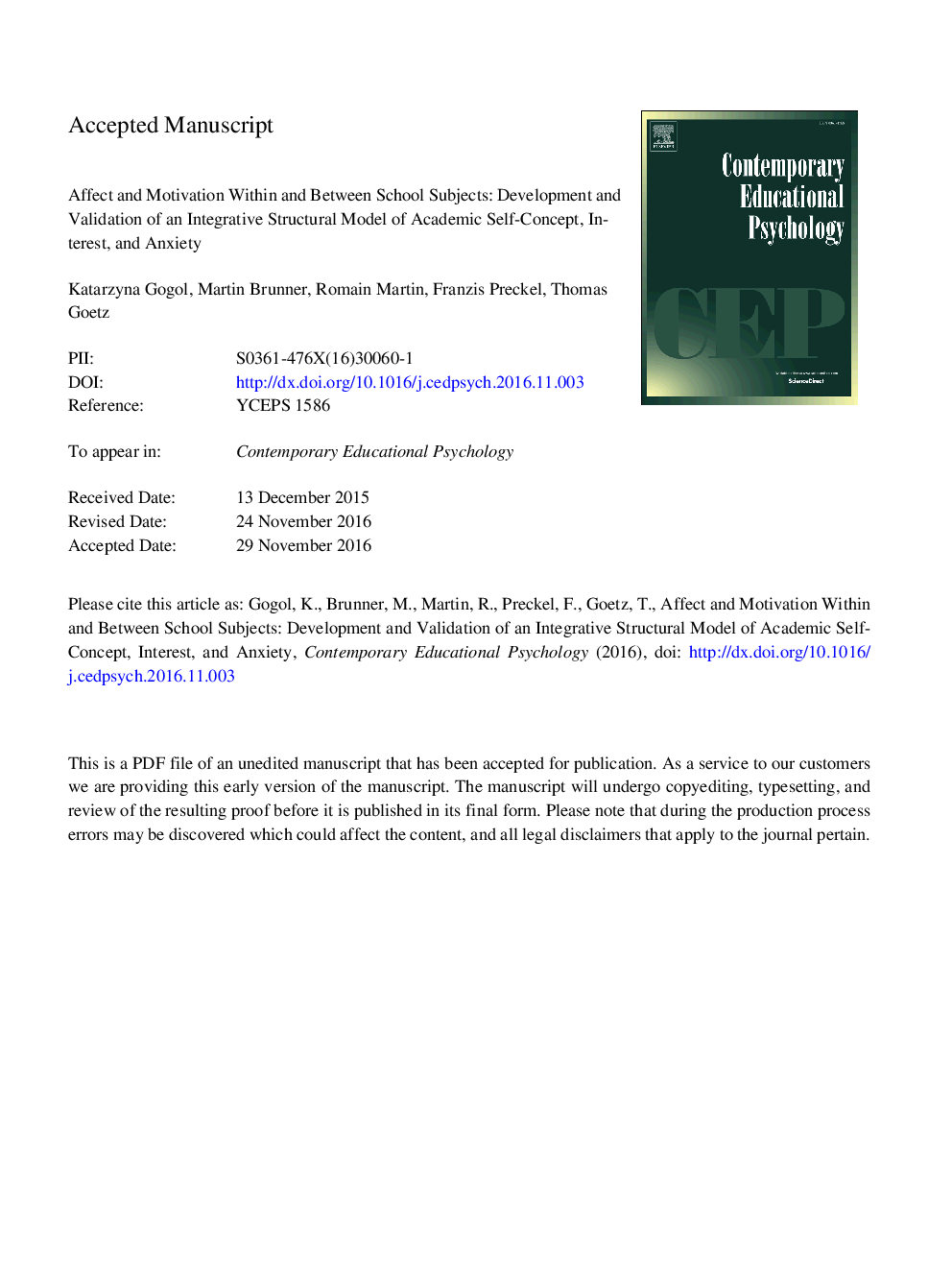ترجمه فارسی عنوان مقاله
تأثیر و انگیزه درون و بین موضوعات مدرسه: توسعه و اعتبار یک مدل ساختاری انتگرالگیر از خودپندایی، علاقه و اضطراب تحصیلی
عنوان انگلیسی
Affect and motivation within and between school subjects: Development and validation of an integrative structural model of academic self-concept, interest, and anxiety
| کد مقاله | سال انتشار | تعداد صفحات مقاله انگلیسی |
|---|---|---|
| 114424 | 2017 | 76 صفحه PDF |
منبع

Publisher : Elsevier - Science Direct (الزویر - ساینس دایرکت)
Journal : Contemporary Educational Psychology, Volume 49, April 2017, Pages 46-65
ترجمه کلمات کلیدی
خودآموزی تحصیلی، علاقه علمی، اضطراب علمی، مدل فاکتور ناسازگار،
کلمات کلیدی انگلیسی
Academic self-concept; Academic interest; Academic anxiety; Nested-factor model;

